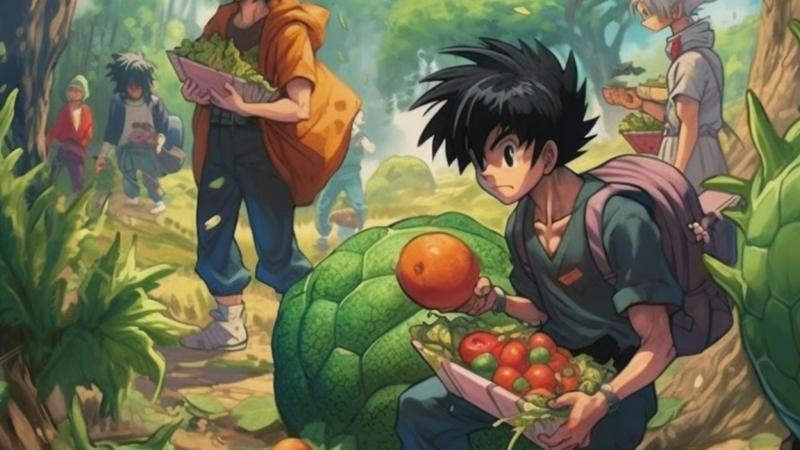Foraging is a bit like a treasure hunt, only instead of a pirate's chest filled with gold, you’re likely to find yourself with a basket full of dandelions and some questionable mushrooms. While most people have been trained from a young age to avoid eating anything that grows outside of neatly packaged grocery stores, foragers are daring adventurers in search of nature's lesser-known delicacies. But is their passion for wild ingredients a march towards sustainability, or are they simply a band of nature's misfit eaters thriving on the edge?
Finding the Balance
For those who take the plunge into foraging, the line between sustainability and survival can sometimes blur quicker than a raccoon in a trash can. On one hand, gathering food from nature can be an eco-friendly practice that reduces reliance on industrial agriculture. On the other hand, it's crucial to remember that nature isn’t a buffet. Overharvesting can lead to declines in plant populations, which would make foraging akin to bringing a vacuum to a fine dining restaurant. To strike a balance, foragers often follow the age-old wisdom of 'leave no trace' — ideally, this means leaving the environment as untouched as possible. Responsible foraging requires a conscious effort to harvest only what you need, while remembering to say thank you to the earth and occasionally dancing around a tree in gratitude. Though, the latter is entirely optional.
What’s on the Menu?
The foraging menu is as eclectic as a hipster café’s offerings. Here’s a brief guide to some wild delights that might make your taste buds sing or your friends giggle:
- Wild garlic: Great for adding a zing to your cooking, though you might want to avoid garlic breath at the next family reunion.
- Dandelion greens: Often considered weeds, these vibrant leaves are surprisingly gourmet. Just don’t let Grandma catch you picking them in her garden.
- Acorns: High in fat content and very versatile, but remember to soak them — otherwise, you might end up with a face like you just bit into a lemon.
- Chanterelle mushrooms: Delicious and worth the hunt, though mistaking them for a toxic cousin could land you a complimentary ride to the hospital.
Local Laws and Ethics
Before you embark on your foraging adventures, it's vital to brush up on local laws. Some areas restrict foraging to protect native species, and others have outright bans that could make your wild escapade a ticket to the local court instead of a delightful picnic. It’s always best to know what’s legal before deciding the ethics of your menu selections.As for ethics, it’s essential to approach foraging with respect. Think of it like borrowing a book from a library — you wouldn’t take the whole collection, would you? Take only what you can use and leave the rest for others (and the ecosystem). Consider the old forager’s motto: “Only take pictures and leave footprints.” Naturally, this is not as appetizing, but it certainly aligns with the principles of sustainability.
Foraging Gone Wrong
There’s nothing quite like the thrill of foraging, but it’s not without its mishaps. Imagine plucking a “delicious” looking mushroom only to discover later that it’s a notorious cousin of the edible kind. The result? A culinary experience that would make even the bravest foodie cry for their mother (or call for an ambulance).Inexperienced foragers might think they’re living out their survivalist dreams, only to find themselves surrounded by a chorus of confused owls and some very judgmental squirrels. A solid rule of thumb is not to forage alone, especially if you’re unsure about your identification skills. Safety in numbers means someone else can make a run for help if that mushroom turns out to have more in common with the Grim Reaper than a gourmet chef.
Harvesting Happiness
Foraging can be a rewarding endeavor, bridging the gap between food, nature, and community. While it does require some forethought and respect for the natural world, the joy of discovering a hidden patch of wild strawberries or the thrill of spotting a rare herb can make it all worthwhile. Just remember to share your bounty (and stories of your adventures) with friends, or risk finding yourself as the lone wolf who starved amidst a forest of plenty.Ultimately, the journey of foraging delivers far more than just a meal. It offers a connection to the earth, a chance to embrace adventure, and the opportunity to gather stories, laughter, and the occasional bruised ego from misidentified mushrooms. If you’re heading out into the wild, may your basket be full and your stomach even fuller!







